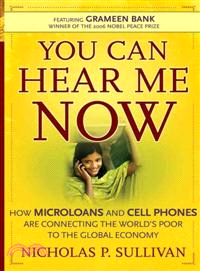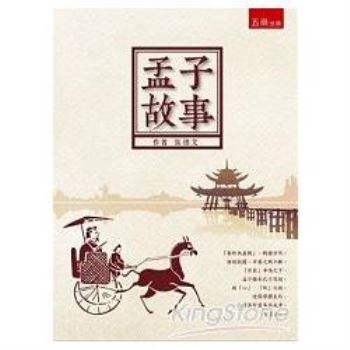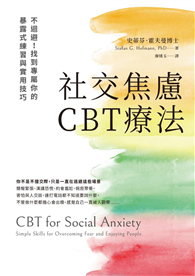| FindBook |
|
有 1 項符合
0840 62的圖書 |
 |
$ 943 | You Can Hear Me Now: How Microloans And Cell Phones Are Connecting The World'S Poor To The Global Economy
作者:0840 62 出版社:JOHN WILEY & SONS,LTD 出版日期:2007-01-17 規格:23.5*16.5*2.5cm / 精裝 / 272頁  看圖書介紹 看圖書介紹
|
|
|
- 圖書簡介
Bangladeshi villagers sharing cell phones helped build what is now a thriving company with more than $200 million in annual profits. But what is the lesson for the rest of the world? This is a question author Nicholas P. Sullivan addresses in his tale of a new kind of entrepreneur, Iqbal Quadir, the visionary and catalyst behind the creation of GrameenPhone in Bangladesh.
GrameenPhone—a partnership between Norway's Telenor and Grameen Bank, co-winner of the 2006 Nobel Peace Prize—defines a new approach to building business opportunities in the developing world. You Can Hear Me Now offers a compelling account of what Sullivan calls the "external combustion engine"—a combination of forces that is sparking economic growth and lifting people out of poverty in countries long dominated by aid-dependent governments. The "engine" comprises three forces: information technology, imported by native entrepreneurs trained in the West, backed by foreign investors. - 作者簡介
Nicholas P. Sullivan has written widely about technology and entrepreneurship, as well as international development issues. He is publisher of the journal Innovations: Technology/Governance/Globalization (MIT Press), and a partner in the Global Horizon Fund, a private-equity fund for emerging markets. This is his second book. www.youcanhearmenow.com
- 名人/編輯推薦
Until recently, the outlook for many of the poorest people in Bangladesh was dismal. Despite previous long-term aid from the international community to improve the country's infrastructure and economy, sustainable development was hampered by corruption and governmental inefficiency. This book tells the story of Western-trained entrepreneur Iqbal Quadir, the driving force behind the creation of GrameenPhone, the largest Bangladeshi GSM (Global System for Mobile) cell-phone operation. Quadir had the innovative idea of using local Western-trained entrepreneurs to help villagers attain micro-loans funded by foreign investors (and generated by Nobel Peace Prize winner Muhammad Yanus) and then showing villagers how to operate cell-phone leasing businesses. Sullivan refers to this successful business model as the "external combustion engine" because of its impressive multiplier effects on economic growth. Applications of this model in other poverty-stricken areas worldwide have repeatedly yielded similar results. This book offers valuable insights about the use of cell phones and technology-based investments to generate wealth and demonstrates that entrepreneurship may be more fruitful than aid. This valuable work can be effectively integrated into public administration, global business, and human resource academic courses.
—Caroline Geck, Kean Univ. Lib., Union, NJ (Library Journal, February 2007)
"…describes an inclusive capitalism that engages and enables many of the three billion people living on $1 a day" (Credit Control, June 2007)
"Grameen Bank has an impact on the poor, GrameenPhone on the entire economy."
—Muhammad Yunus,winner of the 2006 Nobel Peace Prize
"You Can Hear Me Now is a powerful proof of the roles that the private sector can play in economic development. Sullivan, by picking one industry—wireless—and cleverly weaving the economics and the growth of the industry with the human dimension, provides a distinctively new perspective on what is possible. A must-read for all those who are concerned about eradicating poverty. Equally, a must-read for managers who are looking for new engines of growth."
—C.K. Prahalad, Paul and Ruth McCracken Distinguished University Professor, The Ross School of Business, the University of Michigan; author, The Fortune at the Bottom of the Pyramid
"With the growing interest in how business can better serve the 'bottom of the pyramid' there is great need for both practical examples of how to do it and better understanding of how such strategies can truly benefit those caught in the poverty trap. This book delivers on both counts."
—Stuart L. Hart, S.C. Johnson Chair of Sustainable Global Enterprise, Cornell University; author, Capitalism at the Crossroads
"You Can Hear Me Now describes the human drama of the poor adopting technology to enhance their productivity. Well-researched and engaging, it expertly walks the reader through one surprising maze after another."
—V. Kasturi Rangan, Malcolm P. McNair Professor of Marketing, Harvard Business School; coauthor, Business Solutions for the Global Poor
"The stories of GrameenPhone in Bangladesh, legendary in development capital circles, and Celtel in Africa, among others, read as colorfully as any of the stories of the Gold Rush in the U.S. in the 1840s. Nicholas Sullivan has recounted the struggle and subsequent success in an easy-to-read but factual manner that shows risks countered by perseverance and guts—proving that you can do well by doing good."
—Alan Patricof, co-founder, Apax Partners and founder, Greycroft Partners - 目次
Preface.
The Author.
Introduction: The Three Forces of External Combustion.
Part I: The GrameenPhone Story.
1. Connectivity Is Productivity
2. Dish-Wallahs of Delhi (and Other Early Models).
3. Cell Phone as Cow: A New Paradigm in Search of Investors.
4. On the Money Trail in Scandinavia.
5. Building a Company.
6. Building a Network.
Part II: Transformation Through Technology.
7. Wildfire at the Bottom of the Pyramid.
8. Cell Phone as Wallet.
9. Wealth Creation and Rural Income Opportunities.
10. Beyond Phones: In Search of a New "Cow."
11. Eyeing the Dhaka Stock Exchange.
Epilogue.
Notes.
Resources.
Index.
|










